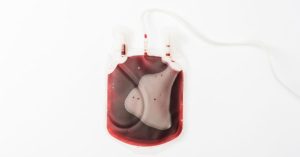
According to Rolling Stone, doctors believed the 79-year-old singer’s “increasingly debilitating memory loss was due to either Alzheimer’s or to dementia brought on by blows to the head from the boxing, football and rugby of his teens and early twenties.” He reportedly could not remember what he was doing from one moment to the next, the magazine reports. [1]
Legendary musician Kris Kristofferson is diagnosed with Lyme disease. The singer had been told his memory problems were due to Alzheimer’s disease.
However, tests for Lyme disease came back positive. Kristofferson’s wife, Lisa, explains that once her husband stopped taking medication for Alzheimer’s and depression and began three weeks of treatment for Lyme disease, his memory and mood change was shocking. “All of a sudden he was back,” she says. “There are still bad days, but some days he’s perfectly normal and it’s easy to forget that he is even battling anything.”
Meanwhile, The Washington Post reports on an 81-year-old retired case officer from the Defense Intelligence Agency, who after surviving Leukemia, is told he has dementia. But is later diagnosed with Lyme meningoencephalitis.
Doctors believed the man was suffering from “a rapidly progressive and fatal dementia, possibly a particularly aggressive form of Alzheimer’s disease,” writes Washington Post reporter Sandra Boodman. [2] He became “moody, confused and delusional–even childish–a jarring contrast with the even-keeled, highly competent person he had been. … He developed tremors in his arms, had trouble walking and became incontinent.”
After testing positive for Lyme disease, the man began antibiotic treatment and has since made a full recovery.
Another case report is discussed in the Journal of the Neurological Sciences. A 75-year-old woman had been admitted to a hospital in Austria with increasing malaise, abdominal discomfort, nausea and constipation. She presented with a 10-month cognitive decline, “low mood,” loss of orientation to time, and impaired attention, concentration and short-term memory. [3]
Her examination revealed a marked slowing of speech and movements with word-finding difficulties, rigor and bradykinesia in the right arm, unsteady, broad-based, short-stepped gait with forward flexed trunk posture, and mildly painful nuchal rigidity, but no photophobia.
The MiniMental State Examination (MMSE) score was 20 (of 30) points. An MRI (Magnetic Resonance Imaging) of the brain showed mild periventricular white matter changes and slight widening of the lateral ventricles indicating the differential of possible early normal pressure hydrocephalus (NPH).
Several diagnoses were possible beyond dementia and NPH. The woman had long-standing drug treatment for depression, anxiety, headaches and musculoskeletal pain, as well as mild head trauma from a motor vehicle accident thirty-three months prior to admission.
Lyme disease was diagnosed based on an abnormal spinal tap. Her cerebrospinal fluid (CSF) evaluation revealed what the authors concluded was Lyme Neuroborreliosis (LNB). The CSF revealed a “predominantly lymphocytic pleocytosis, elevated protein, oligoclonal bands and a highly positive CSF/serum Bb-specific IgG index.”
“Late Lyme Neuroborreliosis was diagnosed according to current European guidelines,” points out Topakian and colleagues. [3] The woman improved with 3 weeks of intravenous ceftriaxone. Three weeks after completion of antibiotic therapy, the MMSE score was 28/30 and all neurological signs resolved. The repeat CSF cleared. The patient’s health remained well on 15-month follow-up.
Unfortunately, in most cases LNB is not identified through spinal taps. Logigian and colleagues found that only 10% of 27 individuals with chronic neurologic Lyme disease had an abnormal spinal tap. One had a pleocytosis of 7 cells and the second had a CSF/serum Bb-specific IgG index of 1. [4] Without a positive CSF, doctors must often use clinical judgment to diagnose neurologic Lyme disease.
Moreover, there are Lyme disease patients who have not fared so well. Fallon has described patients with Lyme encephalopathy an average of 9 years after treatment. [5] Weitzner reported that 11% of individuals with Lyme disease suffered from Post Treatment Lyme disease Syndrome (PTLDS) for more than 11 years. [6]
Such stories and case reports remind us of the importance in considering reversible causes of dementia. Providing a thorough evaluation and using clinical judgment is imperative when treating a patient who presents with dementia-like symptoms.
Sources:
- Kris Kristofferson: An Outlaw at 80. Neil Strauss, Rolling Stone at https://www.rollingstone.com/music/features/kris-kristofferson-an-outlaw-at-80-20160606. Last accessed 6/12/16.
- He beat leukemia. But then, mysteriously, things got really bad. by Sandra G. Boodman at https://www.washingtonpost.com/national/health-science/he-beat-leukemia-but-then-mysteriously-things-got-really-bad/2016/06/06/1178d9f0-0564-11e6-a12f-ea5aed7958dc_story.html. Last accessed 6/12/16.
- Topakian R, Artemian H, Metschitzer B, Lugmayr H, Kuhr T, Pischinger B. Dramatic response to a 3-week course of ceftriaxone in late neuroborreliosis mimicking atypical dementia and normal pressure hydrocephalus. J Neurol Sci. 2016;366:146-8.
- Logigian EL, Kaplan RF, Steere AC. Chronic neurologic manifestations of Lyme disease. N Engl J Med. 1990;323(21):1438-44.
- Fallon BA, Keilp JG, Corbera KM, Petkova E, Britton CB, Dwyer E, et al. A randomized, placebo-controlled trial of repeated IV antibiotic therapy for Lyme encephalopathy. Neurology. 2008;70(13):992-1003.
- Weitzner E, Visintainer P, Wormser GP. Comparison of males versus females with culture-confirmed early Lyme disease at presentation and at 11-20 years after diagnosis. Diagn Microbiol Infect Dis. 2016.



